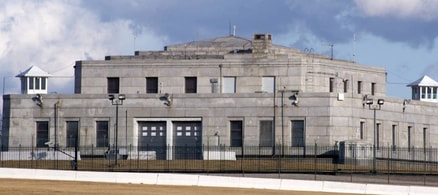1. John Quincy Adams

IQ score: 168.75
With an IQ of 168.75, John Quincy Adams has the highest score of all U.S. presidents.
While studying law at Harvard University, America's future sixth president (1825-1829) became romantically involved with a local woman, but his parents advised him to establish his career before marrying her.
Brokenhearted or not, Adams listened to the advice — and went on to become one of the most respected and productive presidents ever.
He's remembered for his diplomatic skills: he settled the Treaty of Ghent and ended the War of 1812; negotiated with Britain over the location of the U.S. border with Canada; and purchased Florida from Spain.
His successes sure make a good case for choosing duty over love.
Meet Your Retirement Goals Effortlessly
The road to retirement may seem long, but with WiserAdvisor, you can find a trusted partner to guide you every step of the way
WiserAdvisor matches you with vetted financial advisors that offer personalized advice to help you to make the right choices, invest wisely, and secure the retirement you've always dreamed of. Start planning early, and get your retirement mapped out today.
Get Started2. Thomas Jefferson

IQ score: 153.75
Officially, Thomas Jefferson was a planter, lawyer and politician — but he also had in-depth knowledge of mechanics, several languages and architecture, and he was a talented surveyor and mathematician.
He was an extremely busy man with a huge range of interests that he kept under control with a very strict schedule: He rose with the sun, ate breakfast strictly at 8, had a big lunch at 3, and kept track of everything in a trusty notebook.
Jefferson's achievements include writing the Declaration of Independence when he was in his early 30s.
As the third president (1801-1809), he accomplished much: doubled the country’s territory, negotiated peace with France, and developed American trade. He remained an overachiever after retiring from office, when he founded the University of Virginia.
3. John F. Kennedy

IQ score: 150.65
JFK was not just smart — he was a trooper who fought chronic illnesses his whole life and refused to give in.
He pursued an interest in political philosophy at Harvard, then served with distinction in the Naval Reserve in World War II. During his abbreviated presidency (1961-1963), he faced some intense political situations.
Kennedy steered the U.S. through the Cold War, struggles with Cuba and the Middle East, and the rising civil rights and women's equality movements.
As the country was becoming more woke, the 35th president managed to push it toward a more equitable future by signing the Equal Pay Act of 1963 and proposing what would become the Civil Rights Act of 1964.
Kiss Your Credit Card Debt Goodbye
Having a single loan to pay off makes it easier to manage your payments, and you can often get a better interest rate than what you might be paying on credit cards and car loans.
Fiona is an online marketplace offering personalized loan options based on your unique financial situation.
When you consolidate your debt with a personal loan, you can roll your payments into one monthly installment. Find a lower interest rate and pay down your debt faster today.
Get Started4. Bill Clinton

IQ score: 148.8
President No. 42 (1993-2001) had a very hectic childhood amid a lot of family drama, but he didn’t let that hold him back.
Clinton established himself as a strong student in high school, which led to an opportunity to represent his school and meet JFK — a meeting that inspired him to enter public service.
The young man banked on scholarships to fund his education at Georgetown, then at Oxford, and finally at Yale Law School.
After teaching law at the University of Arkansas, Clinton was elected Arkansas' governor. From there, he worked his way up to the nation's top office.
5. (tie) Woodrow Wilson

IQ score: 145.1
Wilson was an underachieving law school dropout, but he managed to pass the Georgia bar exam.
After working to open a law firm, he abandoned it simply due to boredom.
Finally, he went back to school and majored in political science, which eventually led to his election as the 28th president (1913-1921).
If there’s a lesson to be learned here, it’s that nontraditional paths can lead to success! (Especially if you’ve got brains to burn.)
5. (tie) Jimmy Carter

National Archives
IQ score: 145.1
Jimmy Carter came from a wealthy family in Georgia, but he inherited a failing peanut-growing business that quickly forced his own young family to move into public housing.
The resourceful Carter and his wife, Rosalynn, studied up on agriculture and accounting and eventually managed to rebuild the business. After being elected the governor of Georgia in 1971, Carter decided to go national.
The 39th president was in office during a difficult time (1977-1981) thanks to the Cold War, a slow economy at home and an ongoing conflict in the Middle East.
Carter was voted out of office after one term, but his post-presidency has been filled with humanitarian work and writing. He has authored more than two dozen books since leaving the White House.
7. John Adams

IQ score: 142.5
The U.S.' second president (1797-1801) was a lawyer, political theorist and diplomat.
During colonial days, Adams pushed to create the American Navy to support the campaign for independence from Britain.
Impressively, in just five months, he built up a powerful sea force that included eight sailing ships; 10 carriage guns and a number of swivel guns; 13 warships under construction; two Marine battalions; a commander; and eighteen naval officers.
8. Theodore Roosevelt

IQ score: 142.28
America's 26th president (1901-1909) was the youngest man to ever hold the job. When President William McKinley was assassinated, his 42-year-old vice president — Roosevelt — assumed the higher office.
Roosevelt showed that he was smart and more than up to the role of America's chief executive.
As president, he worked to bring Americans clean food and medicine, established many national parks, expanded the Navy, began the construction of the Panama Canal, and successfully negotiated the end of the Russo-Japanese war.
Roosevelt received many honors, including the Nobel Peace Prize in 1906.
9. (tie) James Garfield

IQ score: 141.5
President No. 20 (1881) served one of the shortest terms on record. Coming from humble beginnings, Garfield raised himself up from boat worker to carpenter, through college and finally to the Ohio state Senate.
Garfield gave a very well-received presidential nomination speech for John Sherman in 1880 — and when none of the presidential hopefuls got enough support, Garfield himself was picked as the nominee.
Once he became POTUS, he worked to cut corruption out of the post office and expand the U.S. Navy’s influence, and he advocated on behalf of civil rights for African-Americans. But he was fatally shot just six months after taking office.
9. (tie) Chester Arthur

IQ score: 141.5
Chester Arthur had been a successful lawyer and was President Garfield's VP. After Garfield's untimely death, Arthur stepped up to the top office and became the 21st president (1881-1885).
During his presidency, Arthur worked on civil service reform, to ensure that federal government positions would go to people based on merit, not political affiliation.
But his intellect wasn't enough to win him a second term, largely because of a negative reputation that dogged him from an earlier job.
Arthur was charged with bribery and mishandling government money from his days as the politically powerful Collector of the Port of New York, but he was not convicted.
11. James Madison

IQ score: 141.25
James Madison, the fourth president (1809-1817), was the youngest member of the Continental Congress.
At the College of New Jersey (now Princeton University), he had studied the classics and eventually political philosophy, which influenced his drive to bring civil and political liberty to America.
Madison is remembered as the "Father of the Constitution" for his major role in drafting the U.S. Constitution and the Bill of Rights.
He served two terms as president, and, after the disorganized and expensive War of 1812, he supported the development of a stronger military and a national bank.
12. Abraham Lincoln

IQ score: 140
America's legendary 16th president (1861-1865) came from humble beginnings and used his brain and determination to make history.
After his first business failed, Lincoln decided to take a stab at politics. He was a great speaker and a respected captain during the Black Hawk War, but he lost out on getting elected to the Illinois General Assembly.
Instead, he served as a postmaster and a county surveyor. He decided to teach himself law by studying on his own, and he became a successful practicing attorney.
Lincoln was an outspoken opponent of slavery, because he said it violated the principles of the Founding Fathers that all men are created equal. As president, he signed the Emancipation Proclamation that ended slavery in America.
13. Franklin Roosevelt

IQ score: 139.6
Franklin Roosevelt was one of the most influential U.S. presidents in modern times and was the only one to serve three full terms.
The 32nd president (1933-1945) took office in the middle of the Great Depression, and launched a number of programs under the New Deal to provide economic relief to Americans, including the Social Security program we still have today.
He made even more legendary decisions in the pressure of World War II. He declared war on Japan after the Pearl Harbor attack, oversaw the development of the atomic bomb, and helped lay the groundwork for postwar Europe.
Roosevelt also worked with Allied countries on a framework for the United Nations.
14. John Tyler

IQ score: 136.2
As a young lawyer, John Tyler earned such a good reputation with his clients that they helped him enter the world of politics. When President William Henry Harrison died, Tyler was the first VP to become president without election.
President No. 10 (1841-1845) disagreed with many of his own political party’s bills, and most of his Cabinet resigned fairly quickly after he took office. He was dubbed "His Accidency" and booted from the Whig party.
Tyler believed in manifest destiny, and worked to expand American borders and values. But — since slave labor was being used to push America's boundaries at the time — both manifest destiny and Tyler would eventually fade from the nation's memory.
15. Millard Fillmore

IQ score: 135.98
Our 13th president (1850-1853), Millard Fillmore was a true rags-to-riches story. As the son of sharecroppers, he wasn't able to attend school but managed to get out of poverty by studying on his own.
He started out as a judge's apprentice and later became a lawyer with almost no formal training. In Buffalo, New York, he was a respected lawyer and politician, and he eventually ran as vice president on the ticket with Zachary Taylor.
They were elected, and Fillmore ended up in the hot seat upon Taylor’s death. He presided over tough times, including cultural upheaval over slavery laws, and his policy choices were none too popular.
After leaving office, he became one of the founders of what is now the State University of New York at Buffalo.
16. Franklin Pierce

IQ score: 134.78
Pierce's father was a military leader in the Revolutionary War, which gave the family celebrity status in rural New Hampshire. The family name gave Pierce a leg up in local politics, and he used it to become America's 14th president (1853-1857).
Sadly, most historians refer to him as one of the worst presidents in history.
Pierce worked to increase accountability in government and lay the groundwork for building railroads, but his successes were spoiled by less popular initiatives, including the Kansas-Nebraska Act.
It allowed new territories to decide for themselves whether to allow slavery. The law sparked violent conflicts between pro-slavery and anti-slavery settlers, and paved the way for the Civil War.
17. (tie) William Henry Harrison

IQ score: 133.93
William Henry Harrison was seventh and final child in his family, which meant that he got a measly inheritance.
So, he decided to rely on his talents and intellect instead, and pursued a military career to establish himself in the world.
After success on the battlefields, he entered politics and was the first governor of Indiana. He was elected the ninth president (1841).
After his swearing-in, Harrison caught a cold that turned out to be deadly. He served for only 30 days, 12 hours and 30 minutes — the shortest presidential term in history.
17. (tie) Rutherford B. Hayes

IQ score: 133.93
Before entering the law program at Harvard, the future 19th president (1877-1881) worked for almost a year in a law office.
Hayes was a firm believer in equality and, as a lawyer, he defended runaway slaves in court. Some might call him an idealist.
As president, he promoted civil service reform and worked to negotiate lingering tensions from the Civil War and Reconstruction.
Hayes did his best to end social and political tensions over race, but he failed to achieve a peaceful resolution.
19. Martin Van Buren

IQ score: 133.35
The eighth president (1837-1841) was the first whose family background wasn't British. Van Buren grew up in a Dutch community in New York, and he's the only president to learn English as a second language.
He was able to overcome his ethnic background to play many roles in the Democratic party and win election to the highest office in the land.
As president, he dealt with a major economic depression and, denied admitting Texas into the Union.
But Van Buren would fall prey to bad press. He lost his bid for a second term to William Henry Harrison, who blamed a weak economy on Van Buren and nicknamed him “Martin Van Ruin.”
20. George Washington

IQ score: 132.5
America's revered first president (1789-1797) is given an IQ score near the middle of the pack. Washington had only an elementary school-level education, but he's a reminder that a person can still carve out a place in history, even without a good education.
His family's poverty and the untimely death of his father forced him out of school, but Washington used his knowledge in mathematics, surveying, drafting and mapmaking to become a colonial surveyor at just 17.
He spent six years in the colonial military during the bloody and disorganized French and Indian War.
After some military successes and several disastrous campaigns, Washington came to see that the states needed a strong national government.
More: The perks and perils of being a former president
21. Benjamin Harrison

IQ score: 132.15
Another lawyer by trade, Benjamin Harrison ran a successful practice and was a prominent church leader and politician in Indiana before being elected as the 23rd president (1889-1893).
As POTUS, Harrison created the national forest reserves, added six western states to the Union, and built up the Navy.
Unfortunately, he was unsuccessful in winning education funding and the enforcement of voting rights for African-Americans. He ended his presidency with low approval due to a significant increase in federal spending during his term.
Nobody ever said being president was easy!
22. Dwight Eisenhower

IQ score: 131.9
While attending West Point, the future general and 34th president (1953-1961) had a questionable disciplinary record and was more interested in athletics than studying.
After his graduation in 1915, Eisenhower joined the Army and impressed the generals he served under.
Following the WWII attack on Pearl Harbor, Eisenhower was called to Washington. He was responsible for drafting major war plans to take down Japan and Germany. Later, he served as the first Supreme Commander of NATO.
Though Eisenhower was a conservative president, he oversaw an expansion of Social Security. Historians rate this once underachieving student as a successful and high-achieving president.
23. Richard Nixon

IQ score: 131
Throughout his schooling, the future 37th president (1969-1974) was an exceptional student, earning stellar grades and excelling in several extracurricular activities.
After graduating from law school, Nixon applied to work with the FBI, but he didn’t get a response. So, he joined a small law firm and worked his way up to partner. He also received two commendations for his military service in World War II.
Nixon ran for president twice, and won narrowly the second time.
His story would be one of persistence and intellectual achievements, including major foreign policy accomplishments — but all of that was overshadowed by scandal. Nixon is the only president to resign from office in disgrace.
24. Grover Cleveland

IQ score: 130.95
America's 22nd (1885-1889) and 24th (1893-1897) president is a great example of what you can achieve through determination and a commitment to high values.
Cleveland couldn't afford to go to college, but he passed the bar exam through self-study. After working for a law firm for three years, he opened his own practice.
He would become mayor of Buffalo, New York, and then New York's governor. During his first term as president, Cleveland was fairly popular, but he failed to get re-elected due to campaign mismanagement.
After four years out of office, he was elected to a fresh term and returned to the White House. He is remembered for his honesty, integrity and his determination to fight political corruption throughout his life.
25. James K. Polk

IQ score: 130.2
President No. 11 (1845-1849), James K. Polk was widely praised for his intense work ethic, but he sacrificed his health and social life for success.
Polk’s hard work made him one of the most effective presidents of his time. He managed to achieve every major policy promise he made, and extended the country’s borders to the Pacific, readying America to become a world power.
He had enough success to fill several lifetimes — and then he died, just three months after leaving the White House.
Polk serves as a stark reminder of the importance of maintaining a good work-life balance!
26. (tie) William McKinley

IQ score: 130.18
During the Civil War, the future 25th president (1897-1901) worked as a subordinate of Rutherford B. Hayes, both of whom would later become POTUS. These two make a great case for networking and mentorship!
With the support of Hayes, McKinley had a successful run as president.
He oversaw a thriving economy; started and won the Spanish-American War; gained Puerto Rico, Guam and the Philippines from Spain; and signed a resolution annexing Hawaii to the United States.
His presidency ended when he was gunned down by an anarchist assassin.
26. (tie) George H.W. Bush

IQ score: 130.13
The first President Bush had a very long career in politics before becoming No. 41 (1989-1993).
He was U.S. ambassador to the United Nations, served in Congress, and was chairman of the Republican National Committee.
Along the way, Bush Sr. was known for persistently cultivating business relationships — and professionals of all ages can be inspired by his next-level networking skills!
As president, he’s remembered for overseeing military operations that ended in the fall of Berlin Wall and the dissolution of the Soviet Union, and for signing the NAFTA treaty uniting the U.S., Canada and Mexico in a trading bloc.
28. Ronald Reagan

IQ score: 130
Reagan said his parents taught him to be impartial, to maintain a strong sense of faith, and to give priority to doing good for others.
The 40th president (1981-1989) took an unusual path to the White House: first making his name as an actor and becoming president of the Screen Actor’s Guild, then working a motivational speaker for General Motors.
After serving two terms as governor of California, Reagan ran several times for the presidency before winning the office.
Although some of his policies were controversial, he stuck to his values — and left office with a 68% approval rating, the highest for a departing president in modern times.
29. Herbert Hoover

IQ score: 129.78
Although he barely got into Stanford, Hoover studied geology at the school and showed a flair for business management. He developed a lucrative side gig doing laundry for other students, and managed the baseball and football teams.
After college, Hoover worked as a mining engineer in Australia, and was soon an investor, financier, speculator and manager of several important mining developments in Australia — and a frequent lecturer at universities.
Although he was a successful businessman, he was an unpopular 31st president (1929-1933) during the Great Depression.
After leaving office, he developed good relationships with Harry Truman and Dwight Eisenhower and would go on to serve in an advisory capacity over three presidential terms.
30. Lyndon B. Johnson

IQ score: 127.83
Legend has it that Johnson proudly boasted when he was only 12 that he would be president one day.
After watching the devastating impact of inflation on a farmer's livelihood, Johnson was determined not to struggle as his parents did. He dreamed big and pushed tirelessly and aggressively to reach his goals.
If his dream was indeed to sit behind the big desk at the White House, he achieved it under tragic circumstances. Johnson was sworn in as the 36th president (1963-1969) when John F. Kennedy was assassinated.
Although he was criticized for his handling of the Vietnam war, historians praise LBJ for passing major laws that improved civil rights, protected the environment, launched Medicare and Medicaid, and removed some barriers to immigration.
31. Harry Truman

IQ score: 127.55
President No. 33 (1945–1953) was legally blind in one eye and never obtained a college degree — so he's another who took a nontraditional path to the presidency.
Truman cheated on a vision test to get into the military, and his successes in World War I honed his exceptional leadership abilities.
He ran as Franklin Roosevelt's VP in 1945 and served in that role for only 82 days until Roosevelt died. Truman took office with little political or foreign relations experience, but his presidency is rated “near great” by historians.
He guided the U.S. into a more internationalist foreign policy, was a founder of the United Nations, oversaw the development of NATO, and made civil rights a priority of his administration.
32. Calvin Coolidge

IQ score: 127.1
America's 30th president (1923-1929) was known as a man of few words, once writing that, "The words of a president have an enormous weight and ought not to be used indiscriminately."
The American people didn’t know what to make of "Silent Cal," but his actions spoke loud and clear.
He made major tax changes that helped spur along the Roaring '20s, and his support of racial equality boosted his popularity.
Although historians don’t rank his presidency very highly, Coolidge proved that leaders come in different forms — and that results resonate louder than talk.
33. Gerald Ford

IQ score: 127.08
After completing his bachelor's degree, Gerald Ford was set on going to law school — but his impressive college football career had NFL teams tossing lucrative contracts at him. He chose to study law while working as an assistant football coach.
Ford became vice president in the midst of scandals, when Vice President Spiro Agnew resigned. He stepped up to the presidency when Richard Nixon also quit.
President No. 38 (1974-1977) inherited high inflation, rising unemployment and the continuing Vietnam War, and he twice faced assassination attempts.
Despite his challenges, Ford is remembered as an honest and straight-speaking president who supported equal rights, and education for children with special needs.
34. William Howard Taft

IQ score: 126.9
William Howard Taft's achievements set an example of the undeniable value of an excellent work ethic.
His early teachers didn’t consider him a brilliant student, but his parents pushed him to grind his way to success.
He was at the top of his class in law school, finishing second out of 121 students, and found progressively more interesting work as a lawyer, a local judge, the solicitor general of the U.S., a federal judge, and the U.S. secretary of war.
Taft served just one term as the nation's 27th president (1909-1913), but he was later given a role he said was an even greater honor: as America's chief justice.
35. Andrew Jackson

IQ score: 126.25
Jackson lived in the early 1800s, a rough and tumble time in American history. His story serves as a teachable moment about how bad decisions can haunt us long after we're gone.
He was a wealthy slave-owning plantation farmer who commanded troops in a number of conflicts and later entered politics based on his military success.
The seventh president (1829-1837) is largely remembered for his support for slavery and his strong opposition to the abolitionist movement.
Still, historians rank Jackson favorably compared to other U.S. presidents because of his promotion of democratic principles and his major achievement, never repeated by any other POTUS: completely paying off the national debt.
36. James Buchanan

IQ score: 125.93
America's 15th president (1857-1861) was a savvy businessman who knew exactly when to make an exit — but not when to buckle down and face a glaring threat.
Buchanan began his political career as a member of the Federalist party. But when he saw that the Federalists were nearing their end, he bolted and became a Democrat.
He's often called one of the worst presidents because he overlooked the issue of slavery and the Southern states' secession and establishment of the Confederacy.
Historians view this failure — which brought the country to civil war — as one of the most terrible presidential mistakes in U.S. history.
37. (tie) Zachary Taylor

IQ score: 125.65
Zachary Taylor may not be considered the smartest guy on this list, but he was observant and a quick study.
While leading a militia against Native Americans, Taylor studied elements of their style of warfare and learned how to defeat his competition.
He also commanded troops in five winning battles in the Mexican-American War, defying orders and pushing his undefeated force far south into Mexico.
Taylor was elected based on his military successes, but he was in office only 16 months before he died of a sudden illness. In his short time, the president tried to keep slavery out of the developing states of California, Utah and New Mexico.
37. (tie) Andrew Johnson
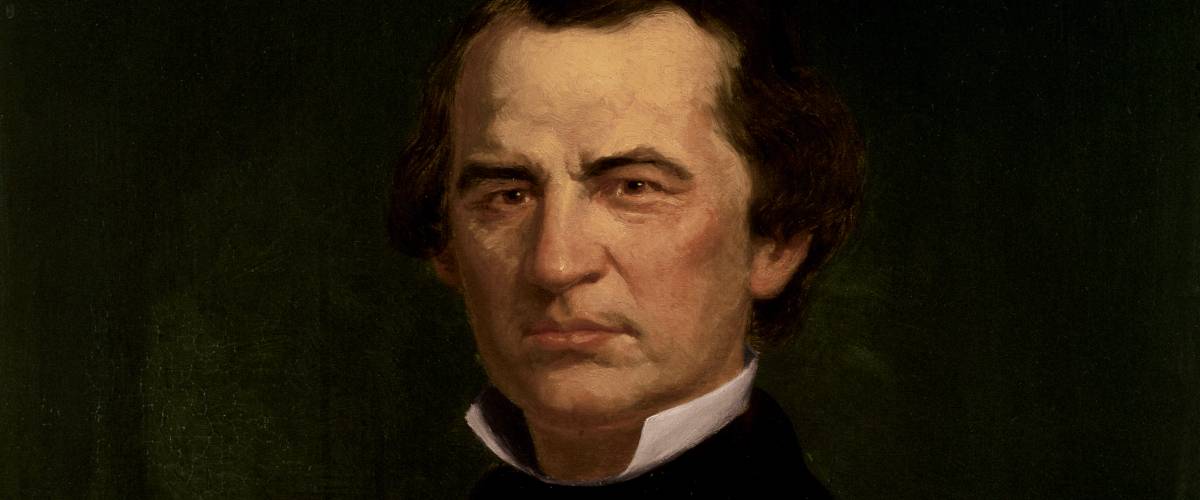
IQ score: 125.65
The 17th president (1865-1869) came from a poor family and never received a formal education.
Lucky for Johnson, his wife Eliza was the daughter of a successful shoemaker, and she taught him mathematics and helped improve his writing skills. Too bad this didn’t help him make good, lasting decisions while in office.
After years of climbing the political ladder, Johnson became president when Abraham Lincoln was assassinated — and his policies contrasted hugely against his predecessor's.
He allowed Southern states to form their own civil governments, which led to freed slaves losing many civil liberties, and he was opposed to guaranteeing rights for African-Americans. Johnson is another president often considered among the worst.
39. George W. Bush

IQ score: 124.88
Continuing a family tradition, Bush was sent to a boarding school. His start at the school was a rather rocky one, and in later years Bush often boasted that his story shows that a straight-C student can succeed.
This modern POTUS drew strong criticism over the Iraq War, his administration's response to the devastation of Hurricane Katrina, and other major controversies.
He had to contend with mean memes, bad press and endless jokes at his expense. He tried to bear it all with humor.
40. Warren G. Harding
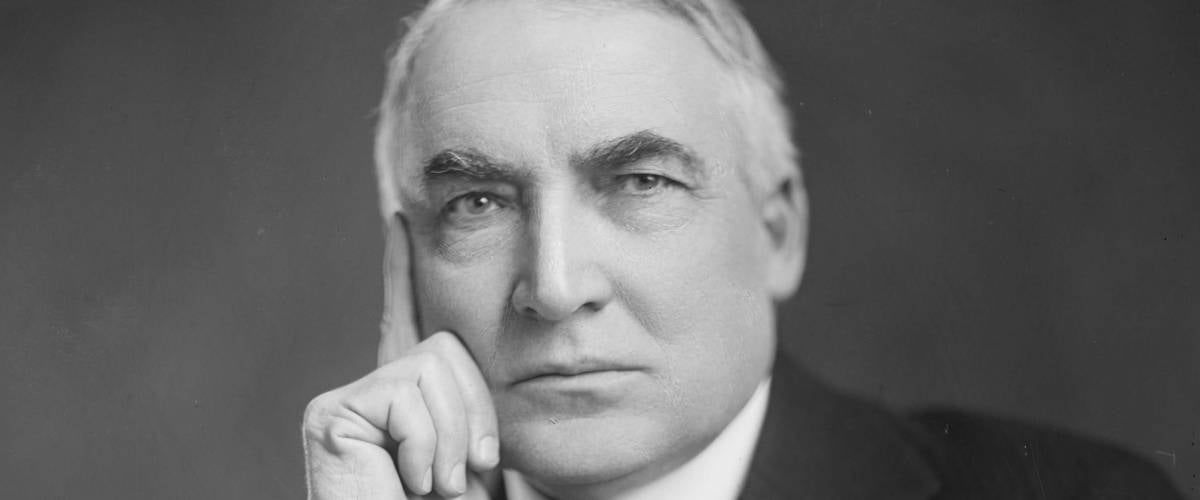
IQ score: 124.3
Before Harding became the 29th president (1921-1923), he was co-owner and manager of a moneymaking newspaper.
As president, Harding continued to find success, as he made many popular moves. He reduced the top marginal tax rate by almost 50%, cut taxes at lower incomes, and pushed for deregulation and more government spending.
Just one year after he took office, the economy turned around from its post-World War I depression to see amazing growth.
But after his untimely death from a heart attack, it turned out that several of Harding’s hand-chosen cabinet members were up to their necks in corruption — which is why historians rate his presidency as one of the worst.
41. James Monroe
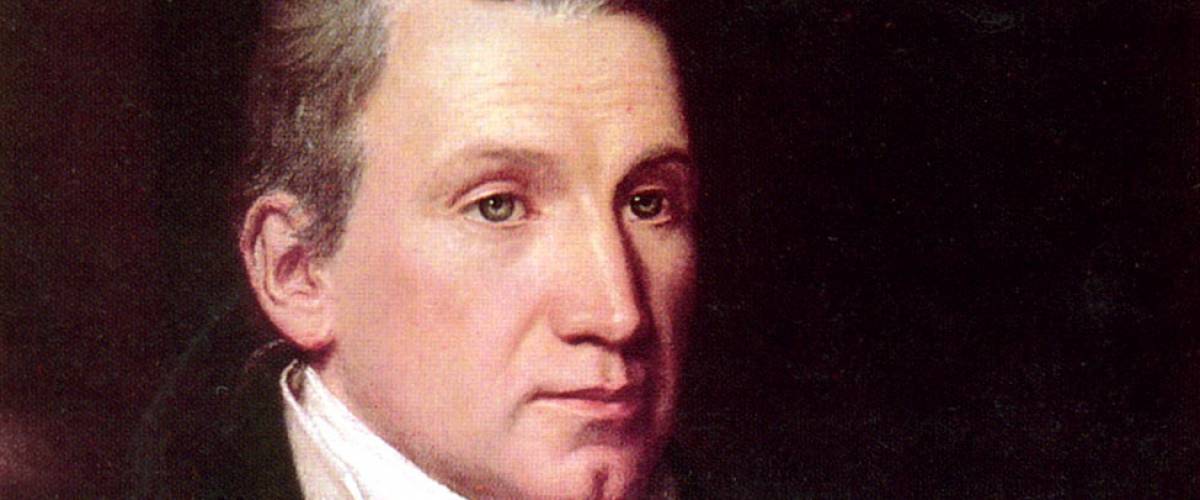
IQ score: 124.13
While the IQ research gives America's fifth president (1817-1825) the second-lowest score, historians say Monroe ran an above-average operation.
Before he became president, he lost his job as America's ambassador to France when he failed at a very important diplomatic meeting and ruined relations with the French. But he returned home and rebuilt his career and reputation.
During his presidency, Monroe oversaw a number of diplomatic successes that extended America's borders.
He also supported founding colonies in Africa for freed slaves, and the capital of Liberia, Monrovia, is named after him.
42. Ulysses S. Grant
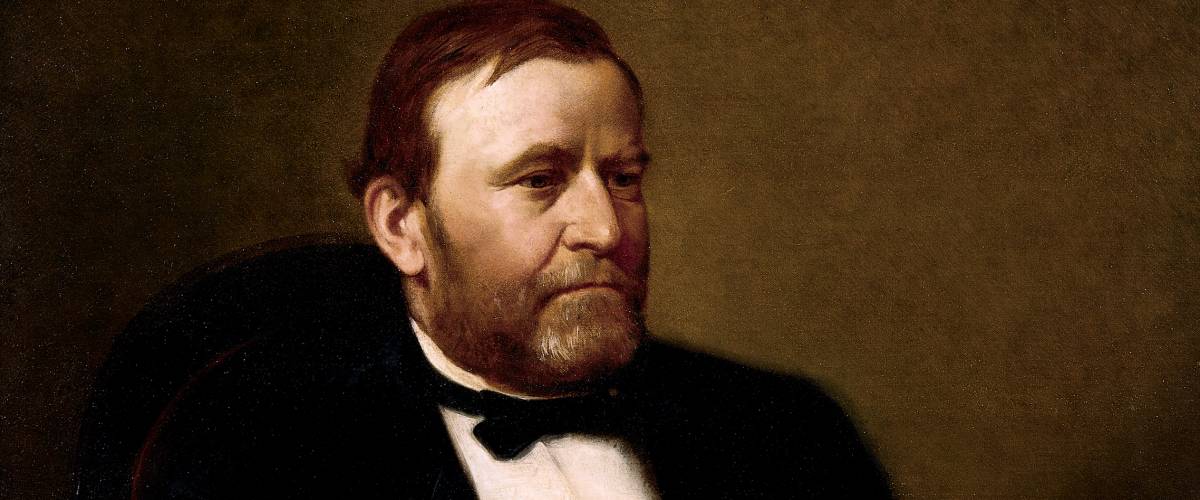
IQ Score: 120
Ulysses Grant is believed to have had the lowest IQ among the pre-2006 presidents. As a boy, the 18th president (1869-1877) was mocked as "Useless" by his classmates and didn’t fit in; he seemed uninterested in school.
After graduating from West Point, he served with distinction in the Army and was a triumphant general in the Civil War.
As president, Grant worked to build trade and American influence in the world, and he had a peace policy with Native Americans, which was very unusual for the time.
Unfortunately, his presidency was dogged by rumors of corruption, and he was unable to stop a terrible depression in the late 1800s that ended in bankruptcy for many people — including Grant himself.
More: US presidents who won by the most (and least) votes
Sponsored
Follow These Steps if you Want to Retire Early
Secure your financial future with a tailored plan to maximize investments, navigate taxes, and retire comfortably.
Zoe Financial is an online platform that can match you with a network of vetted fiduciary advisors who are evaluated based on their credentials, education, experience, and pricing. The best part? - there is no fee to find an advisor.




